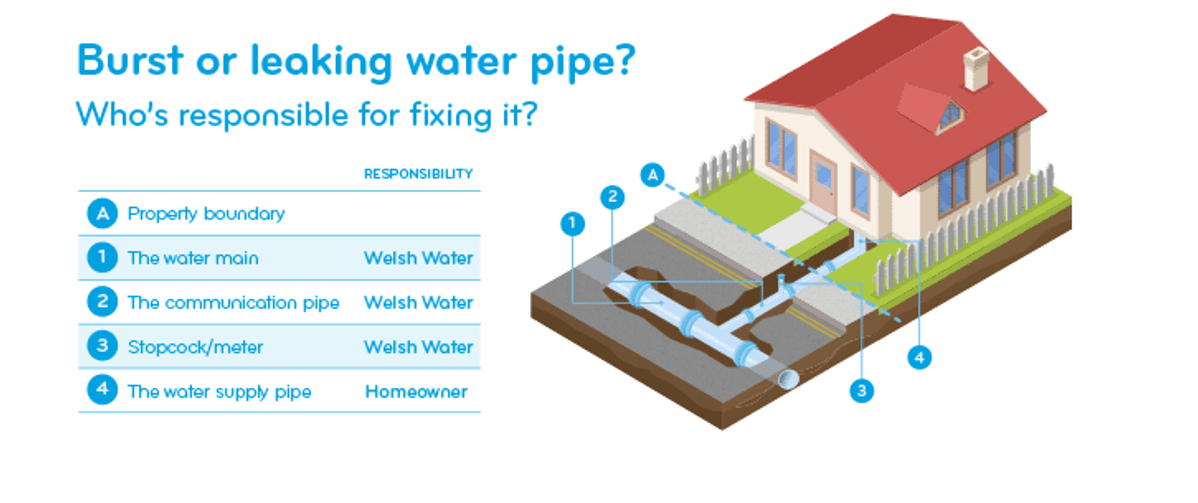Thaw
A sudden change in temperature can cause frozen pipes to burst.
The change from freezing to warmer temperatures can cause pipes to expand and contract, meaning that they can end up leaking, cracking or even bursting.
Customers can help by keeping a close eye on their own properties and use our website to report leaks and only call if it’s an emergency.
How to deal with burst pipes
- If a pipe in your home bursts, this is your responsibility to contact a private plumber – check Watersafe.org.uk for registered plumbers
- Welsh Water is only responsible up until a property’s boundary
- When the water in your pipes freeze, it causes a build-up of pressure which - when it thaws - can cause the pipes to split
- If you are experiencing any bursts on your own property then please don’t panic, follow these steps:
- Try to find where the burst is - and turn off the supply urgently by turning the stop tap clockwise
- Find out where your stop tap is - it’s usually under the kitchen sink, or in a downstairs toilet. It may sometimes be in a garage or outhouse
- Open all taps to reduce flooding
- Soak up or block off escaping water with thick towels
- Turn off your electrics: if the water is near anything electrical - including lights, sockets or appliances - don’t touch them. Electrical wiring damaged by water can be very dangerous and you’ll probably need to call a professional to repair damage
- Call a registered plumber - if you need help to repair a burst pipe, contact a Watersafe-assured plumber watersafe.org.uk
- You can find more help and advice on our website dwrcymru.com/winterready.


